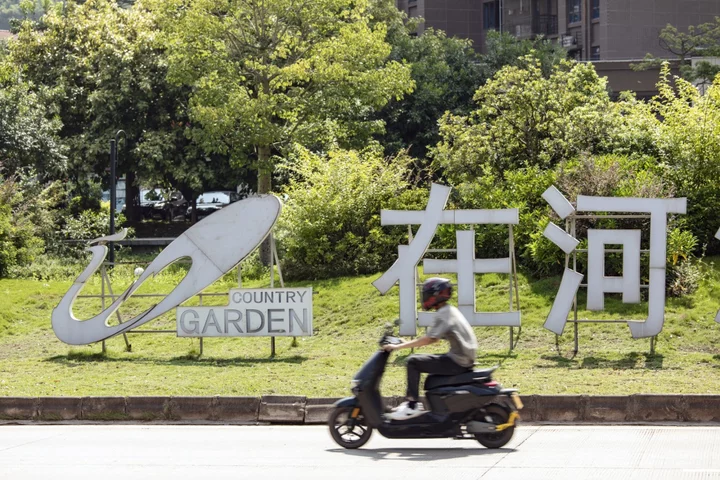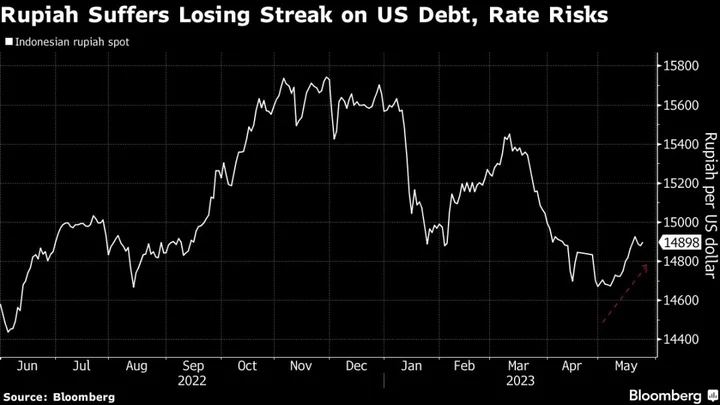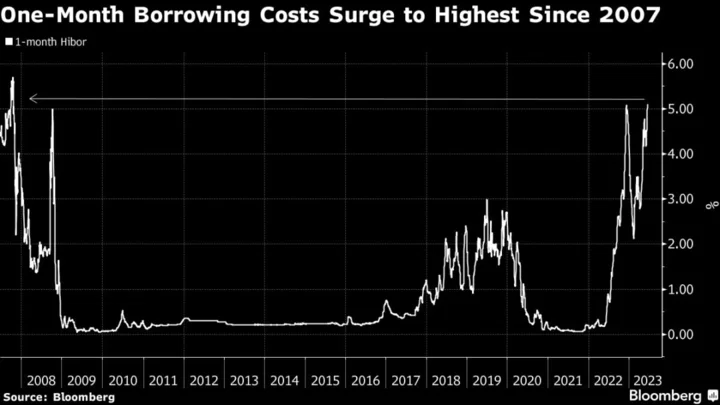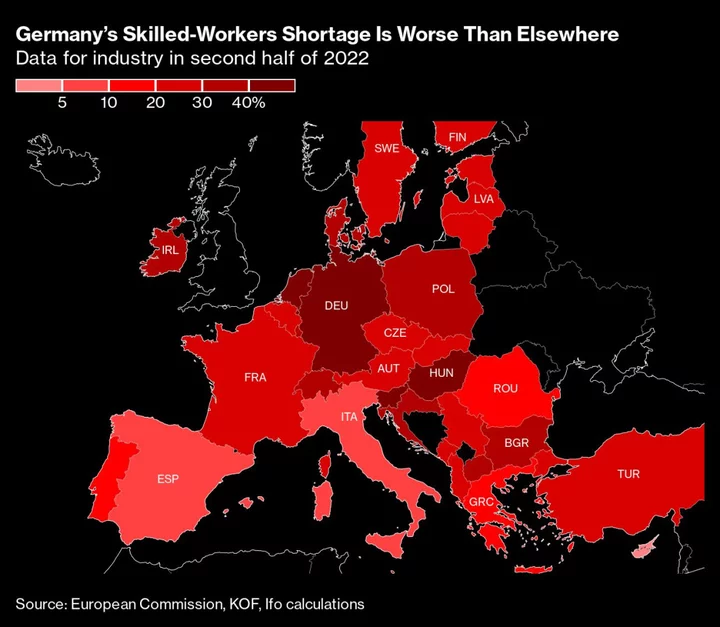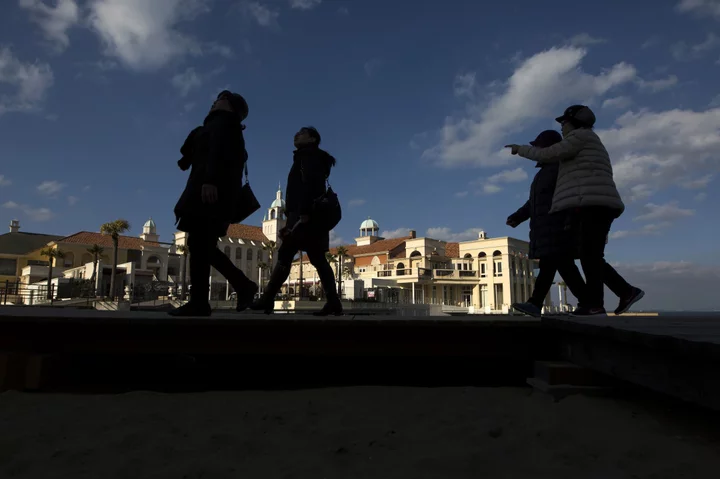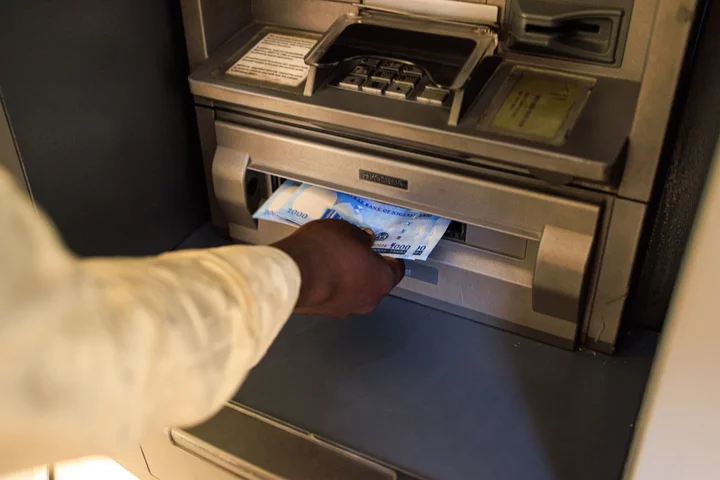Distressed Chinese builder Country Garden Holdings Co. signaled it’s set for a first-ever default as a grace period ends for dollar-bond interest, in the latest sign of a deepening crisis that’s shaken the nation’s financial markets.
“The company expects that it won’t be able to meet all of its offshore payment obligations on time, due to a deep correction in China’s home market and its subdued sales,” the developer said in a statement to Bloomberg News in response to questions about its plans for the $15.4 million of interest due. A holder of the note said they had yet to receive money.
Country Garden, whose $186 billion of total liabilities make it one of the world’s most indebted builders, had to pay by the end of a 30-day grace period Oct. 17-18 or a default could be called. A symbol of China’s broader property debt woes, the builder’s nonpayment would trigger a cross-default on all of its about $10 billion of dollar notes, JPMorgan Chase & Co. analysts including Karl Chan wrote in a note.
“It will hit confidence further and add more hurdles to any future debt restructuring,” Ting Meng, a senior credit strategist at Australia & New Zealand Banking Group, said about Country Garden not paying the interest.
As the crisis in China’s real estate sector heads into its fourth year, money managers say that weak disclosure and unclear communication practices are also putting them off mainland borrowers longer-term.
A seemingly simple question of when exactly Country Garden’s grace period ends was a case in point. The firm hadn’t clarified whether Oct. 17 or Oct. 18 marks the official end of the period. There’s been uncertainty given bond documents didn’t specify whether the 30 days should be counted from the initial deadline of Sept. 17 which fell on a Sunday, or the effective due date of the next business day, Sept. 18.
The company, which was the country’s largest builder by contracted sales for several years before plunging to seventh so far in 2023, is helmed by one of China’s richest women. Its sheer size — with more than 3,000 housing projects in mainly smaller cities and nearly 60,000 full-time employees — makes it important to the broader economy at a time when policy makers are trying to shore up growth.
While data Wednesday showed gross domestic product expanded more than expected last quarter, a weak spot was evident in property investment contracting 9.1% in the first nine months of the year. A Bloomberg Intelligence gauge of Chinese developer shares fell 2.5% on Wednesday to a 14-year low.
The problems for the property market — which along with related industries accounts for about 20% of the world’s second-largest economy — began in 2020 when authorities laid out “three red lines.” Those rules set leverage benchmarks builders had to meet if they wanted to borrow more money.
Such policies were intended to help curb years of excessive debt-fueled expansion by builders and property speculation by homebuyers. But they wound up tipping a record number of developers into default as refinancing costs surged.
Now, with slumping home sales dragging on efforts to revive the economy, authorities have been tweaking policy, including cutting down payments for some buyers and encouraging lenders to lower rates on existing mortgages.
Some have said turmoil at Country Garden could lead to a worse impact than from the 2021 debt failure by China Evergrande Group, which sent shock waves across markets. That’s because Country Garden has several times more projects.
Both are likely headed for what would be among the nation’s biggest-ever restructurings or liquidations, raising the stakes for authorities trying to prevent contagion. Evergrande faces the once-unthinkable possibility of being ordered to wind up on Oct. 30 when a key court hearing takes place.
Country Garden’s dollar notes have been indicated around 5 cents, showing how little money investors expect to recover, after some were near 80 cents in June. Its shares have dropped 72% this year.
The builder hopes to seek a “holistic solution” to solve its problems, it said in its statement to Bloomberg News on Wednesday, adding that keeping the firm as a going concern would help relevant parties. The company “will pursue offshore liability management measures in a fair and equitable manner, and will communicate with all parties to protect interests of all stakeholders,” it said.
Country Garden first warned last week that it didn’t expect to be able to meet all future offshore payment obligations, language which it echoed in its statement Wednesday.
In what’s often a prelude to a broader restructuring, the builder also hired advisers to review its capital structure and form a holistic solution after making last-minute bond interest payments last month.
The firm won noteholder approval in September to extend payments on nine onshore bonds with a combined 14.7 billion yuan of principal.
The founding family of Country Garden recently provided the developer with an interest-free loan of $300 million, local media reported last week.
“It is very bad as the company treated onshore and offshore investors differently,” said ANZ’s Meng. “It extended the maturities for nine onshore bonds by 3 years to avoid default. However, after shareholders lent $300 million in a loan, the company still choose not to pay for the $15 million coupon on the dollar bond which will lead to a default.”
--With assistance from John Cheng and Tan Hwee Ann.
(Updates with more background throughout)

